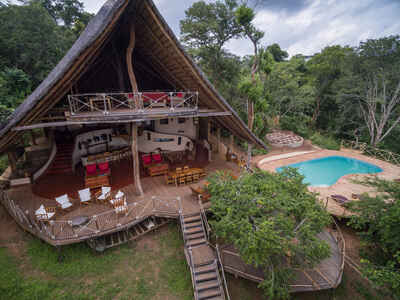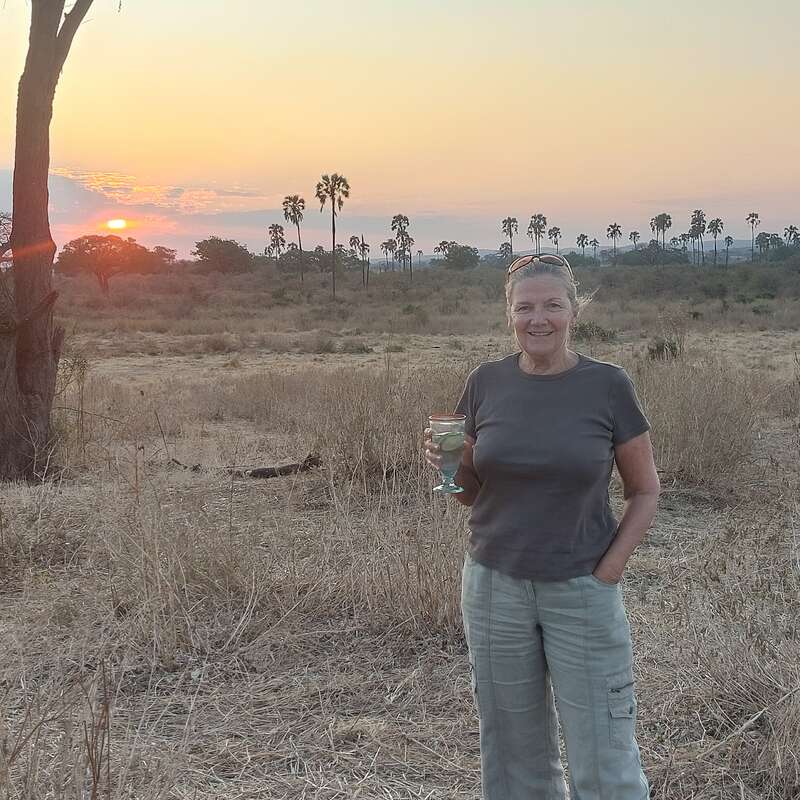About Tongole Wilderness Lodge
The only luxury place to stay in Nkhotakota, Tongole is a beautiful lodge with a relaxing vibe and friendly local staff.
Opened in 2011, Tongole was born out of a desire to help the local community. It was a bold venture in what was then a fairly neglected reserve, and it’s paid off hugely.
Yes, it’s a beautiful building (designed by the same company that designed Madonna’s treehouse) with plenty of secluded places to chill overlooking the Bua River. The swimming pool is a good size and meals are excellent, with a varied menu for dinner. And its four rooms are capacious and relaxing, with huge stone baths and sweeping terraces looking out to the river.
But the best thing about this place are the staff - many were involved in building it and have a real sense of pride and commitment in their work, all with a connection to the local communities that benefit from the lodge.
It’s also a great base for exploring this little-known park, either on walks, drives or by canoe with guides who know the area inside out. Keep an eye out for Short Tail, the happy resident elephant who loves to bathe in the river.
Our view
We really liked Tongole Wilderness; the team was very friendly and keen, and we felt that the 'vibe' was very good – doubtless helped by respect for the ethics of the foundation behind the lodge. Tongole is very comfortable and is set in a remote location with a real feeling of 'wilderness'. Although it's not currently a good game destination, it is a great spot for keen walkers and birders and we are optimistic that we'll see a positive change in the game in Nkhotakota in the coming years
Accommodation
4 cottages plus the 2-bedroomed family cottage
Children
Best for 12+
Open
April to January
Activities

4WD Safari

Birdwatching

Boat trip

Cultural excursion

Guided walking safari

Kayaking
Traveller reviews of Tongole Wilderness Lodge
10 real, un-edited reviews from Expert Africa's travellers.
Arrived 6 Oct 2019, 3 nights
"Tongole - to be rebranded as a retreat"
Overall rating: Average
Arrived 15 Sep 2019, 4 nights
"Tongole Poorly Managed"
Overall rating: Poor
Arrived 17 Sep 2019, 2 nights
"Relaxing Tongole Lodge"
Overall rating: Excellent
Arrived 5 Jul 2019, 2 nights
"Pure luxury in a remote setting"
Overall rating: Excellent
Arrived 24 Jul 2018, 2 nights
"A must visit place."
Overall rating: Excellent
Arrived 6 Oct 2016, 4 nights
"Tongole Magic River Lodge"
Overall rating: Excellent
Arrived 21 Jul 2016, 3 nights
"Tongole Wilderness Lodge review"
Overall rating: Excellent
Arrived 14 May 2016, 2 nights
"Tongole treat"
Overall rating: Excellent
Arrived 21 May 2015, 2 nights
"A treat at Tongole"
Overall rating: Excellent
Arrived 20 Jul 2014, 4 nights
"Beautiful, peaceful, great for relaxing"
Overall rating: Excellent
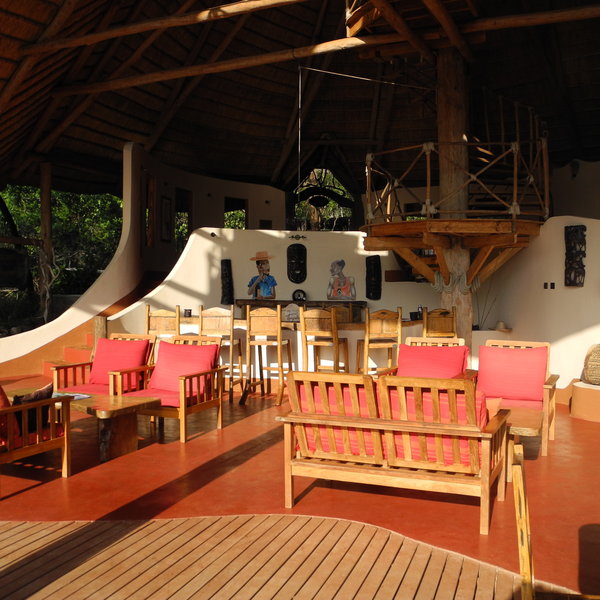
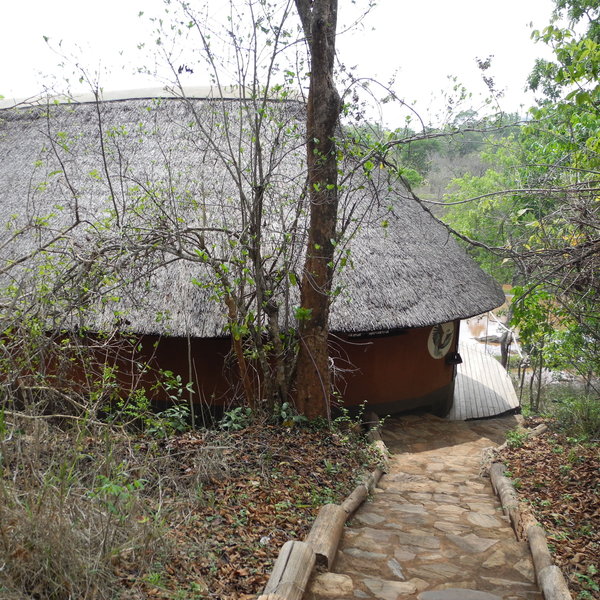
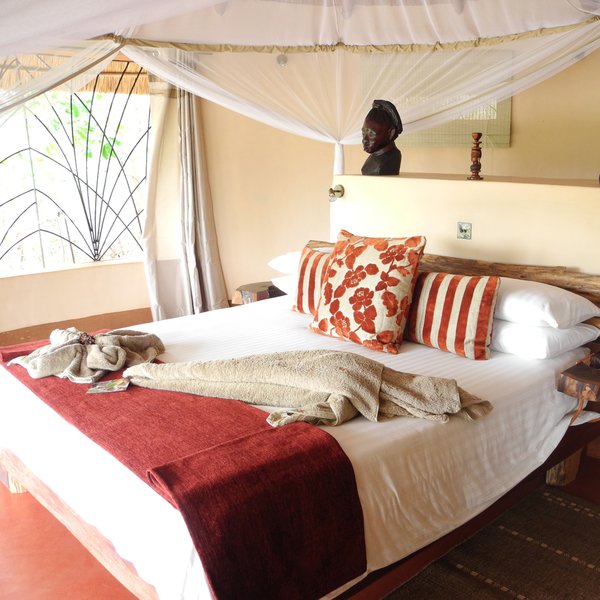
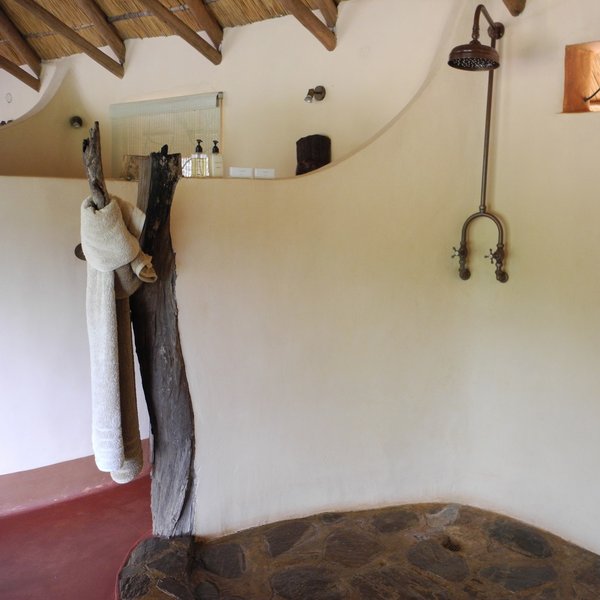
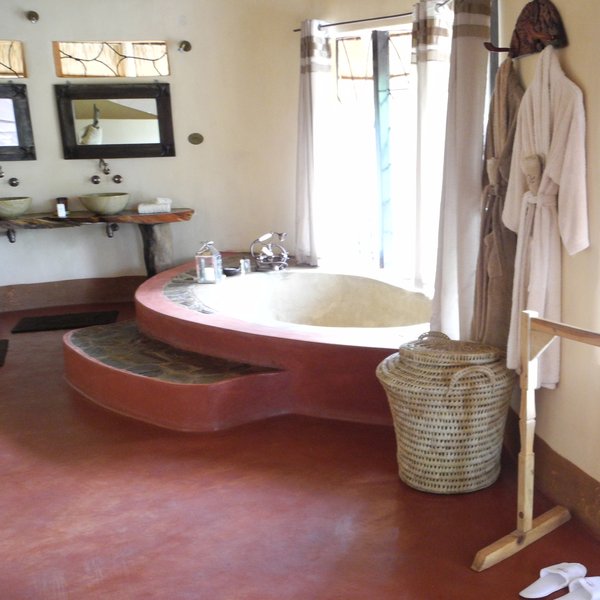
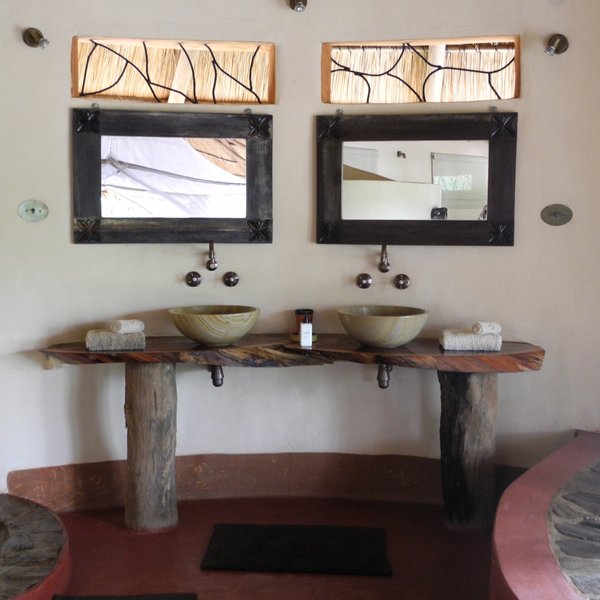
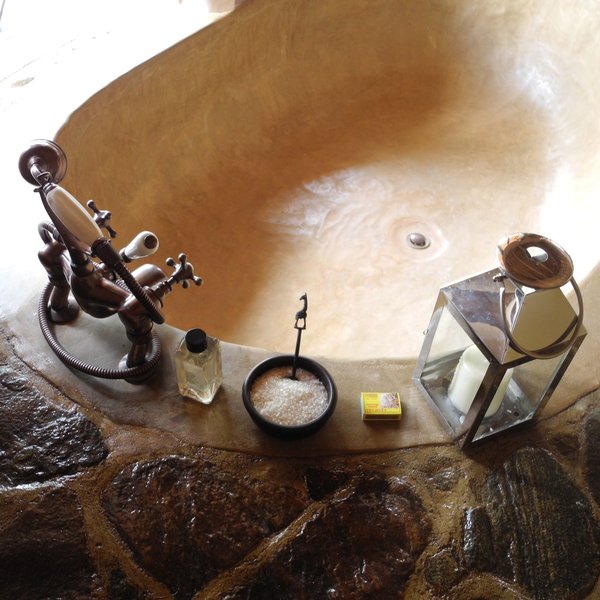
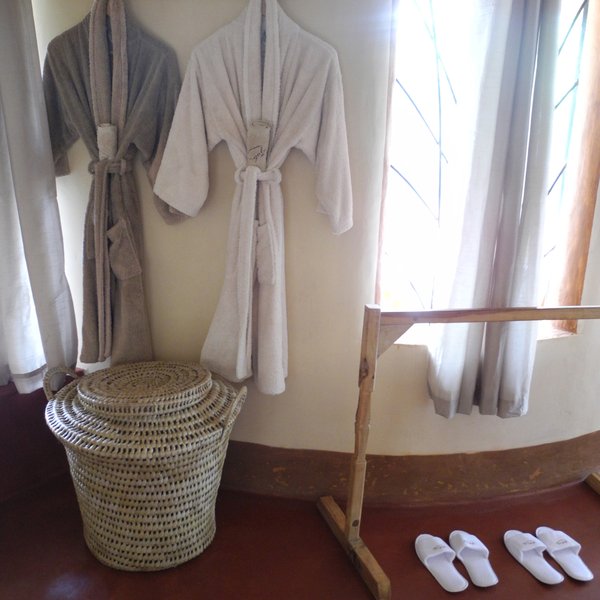
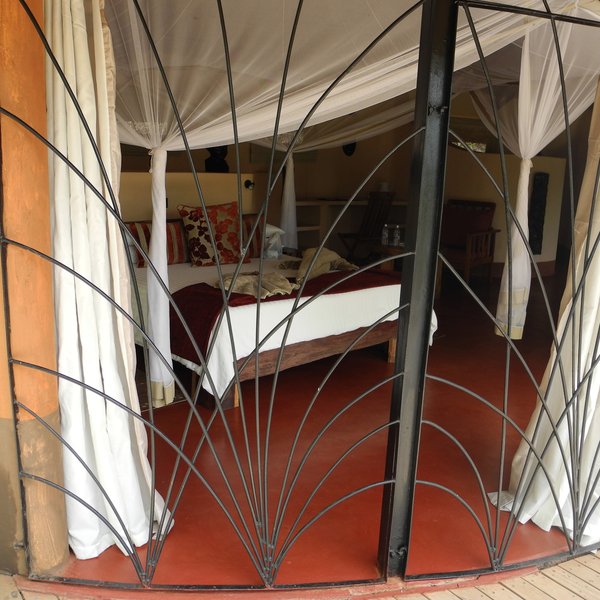
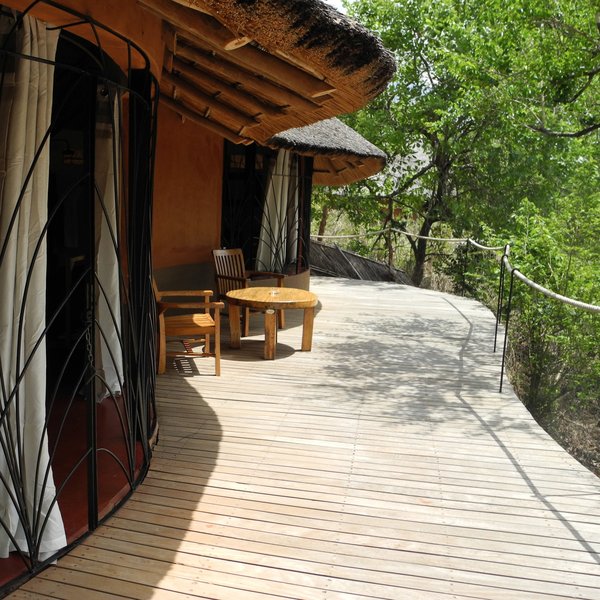
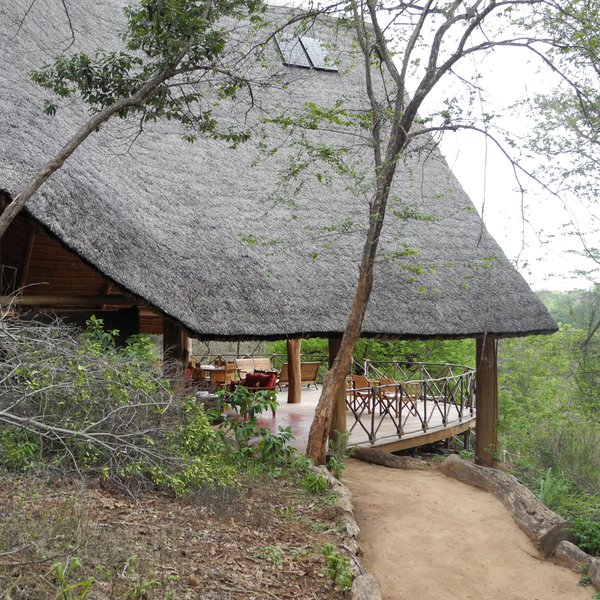
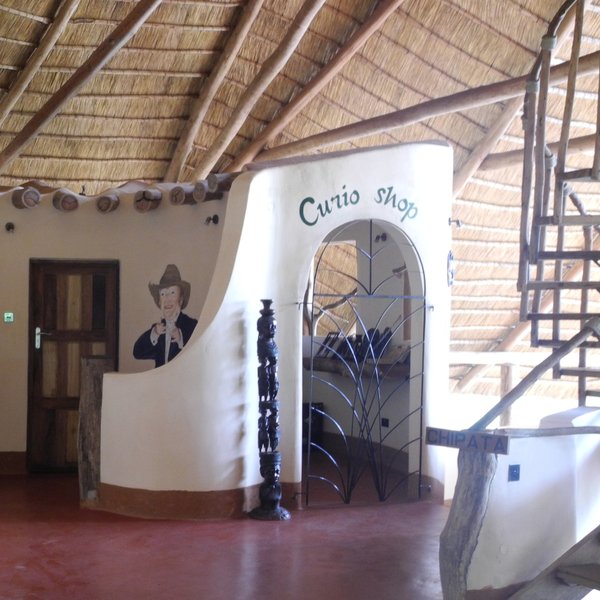
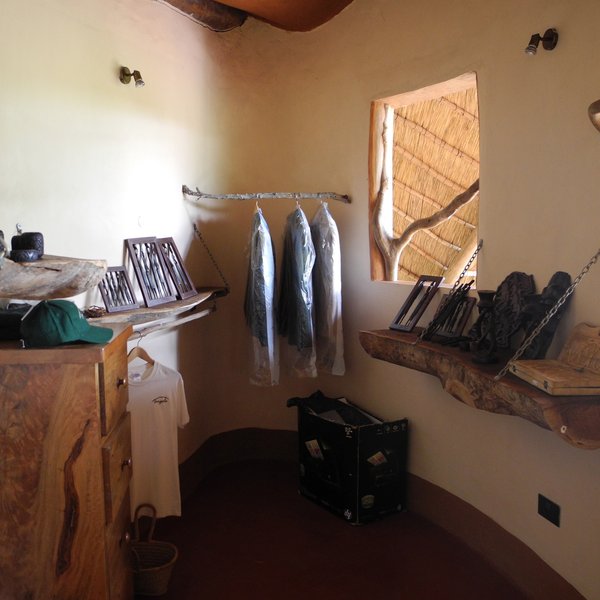
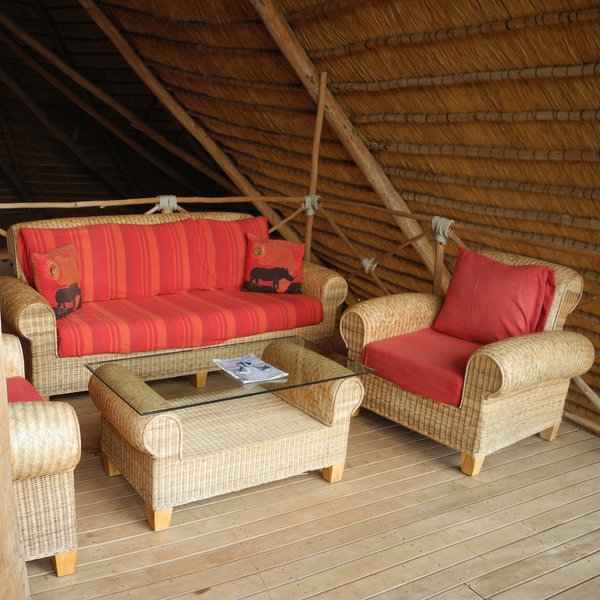
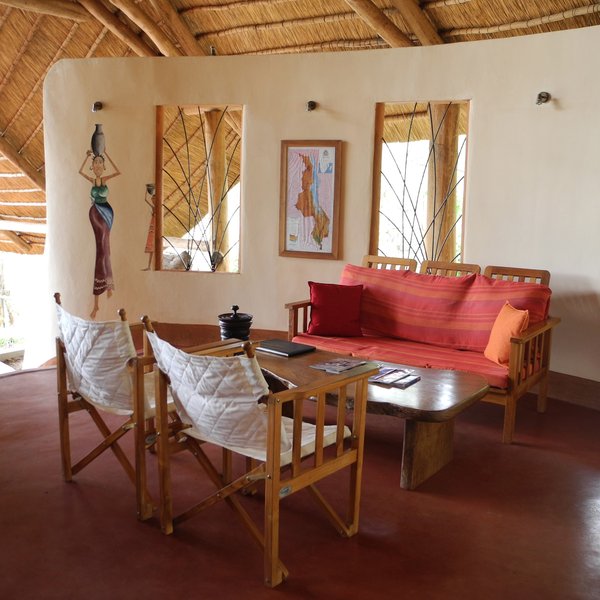
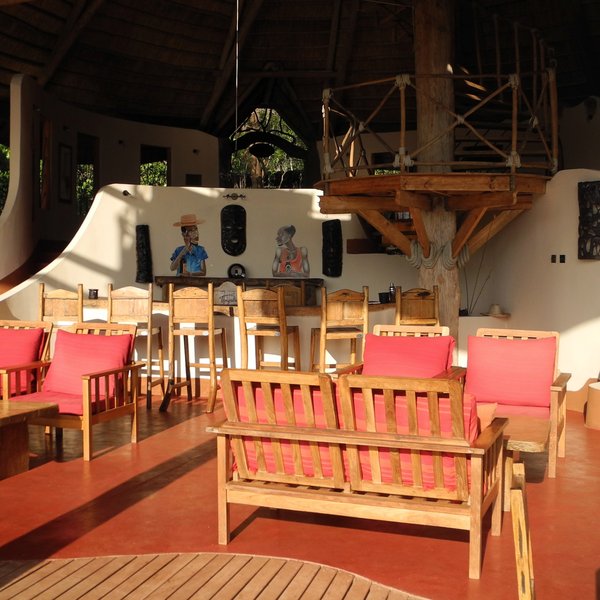
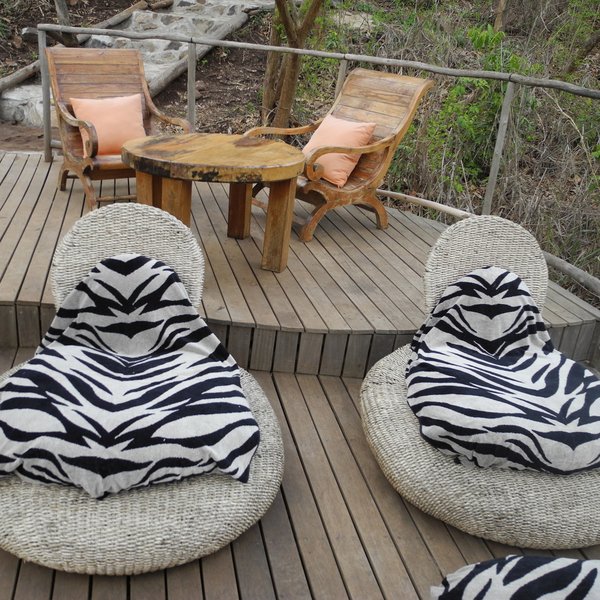
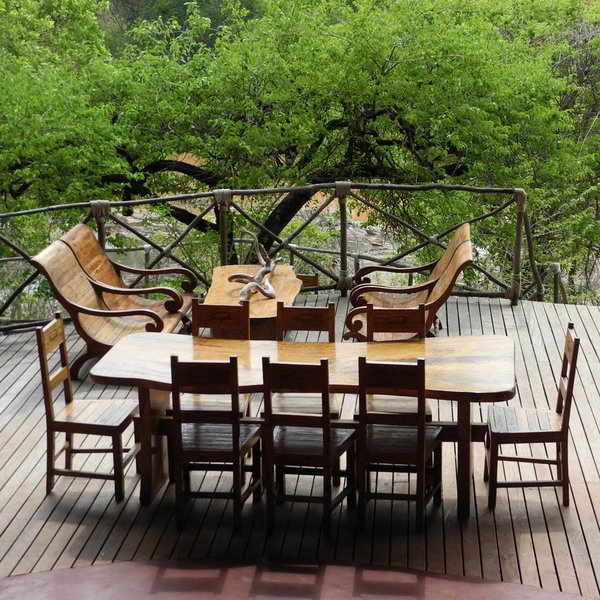
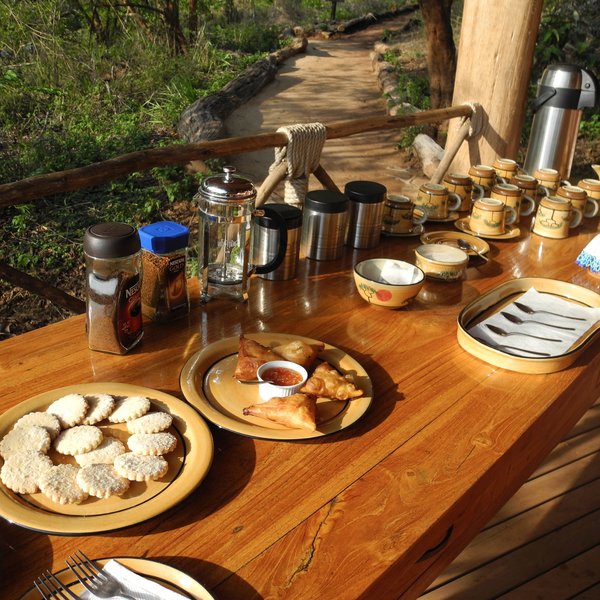
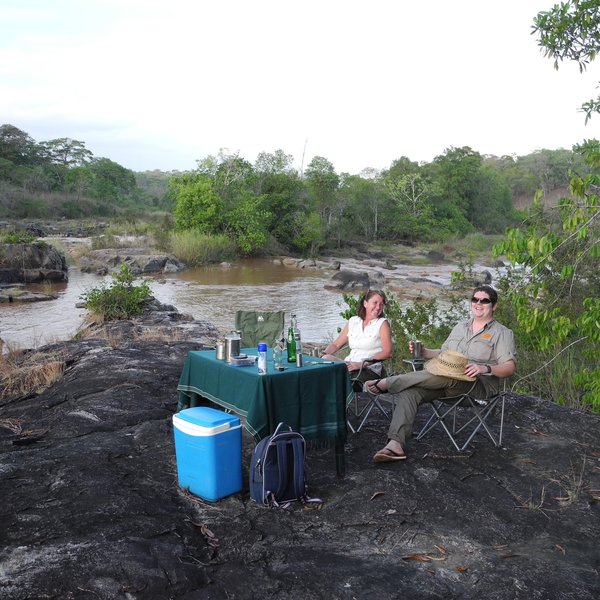
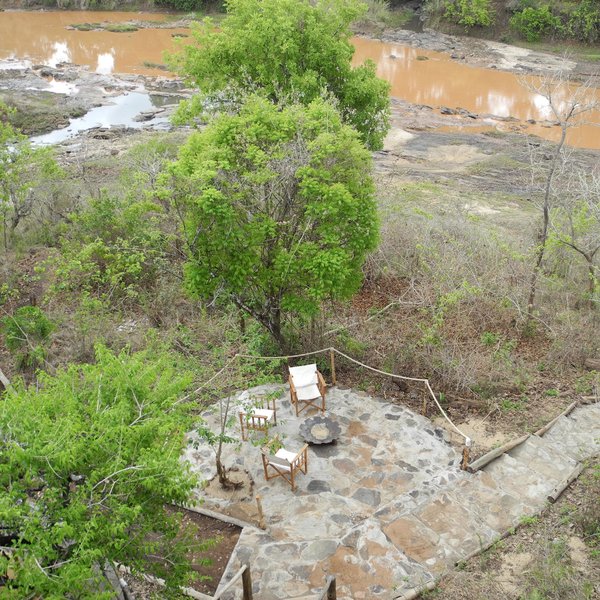
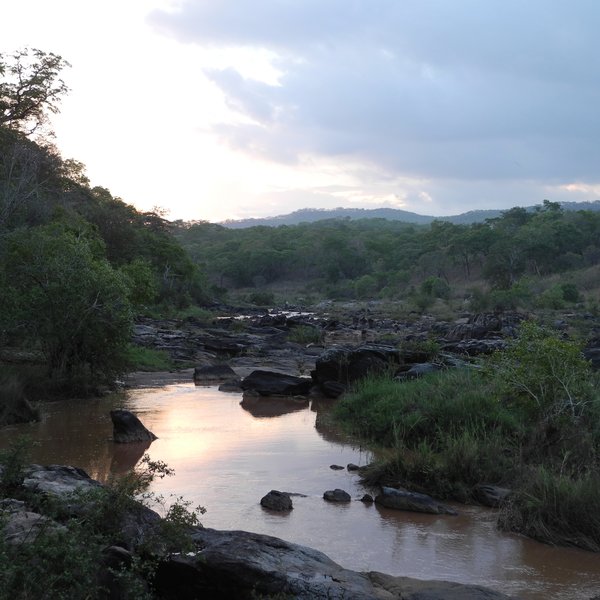
Expert Africa's gallery
When we travel we take lots of photos ourselves to give you a real and un-edited view of the safaris. See our 62 pictures and 1 videos of Tongole Wilderness Lodge to get the candid view.
View galleryTongole Wilderness Lodge: Our full report
Located in the heart of the Nkhotakota Wildlife Reserve, on the banks of the Bua River, the eco-friendly ...
... Tongole Wilderness Lodge is the only luxury lodge in the Nkhotakota Wildlife Reserve which is one of Malawi's last unspoiled areas. It is building a reputation for operating in the most sustainable way possible and making a positive impact to the surrounding communities.
Tongole Lodge was started up as part of the Tongole Foundation, a charity set up by the Directors of Tongole to help vulnerable communities in Malawi, specifically in the Nkhotakota area.
The Tongole Foundation initially came about after the sudden death of a 16-year-old Malawian boy, Vitu Kalanga. At the time, Vitu's father, Bentry Kalanga, was working in the UK for a charity – and Vitu himself was seeing a British girl, Hannah Cole. Hannah's father, David, and Vitu's father, Bentry, decided to set up a project in his memory, and thus the Tongole Foundation was born. One part of this foundation owns and runs Tongole Wilderness Lodge, which employs 30 full time staff; the other part is a charity, which currently supports three local schools. The foundation works actively to reduce poaching in the Reserve promoting the conservation of endangered species.
Tongole Wilderness Lodge has four spacious thatched cottages built by local craftsmen and decorated using locally sourced materials and fabrics. All are open fronted, with a large, private wooden deck offering panoramic views over the river below and the forest beyond. Wrought-iron shutters enable guests to appreciate the view and the fresh air, yet still feel secure at night.
Inside Tongole's cottages, the floors are polished red concrete with locally-made rugs beside the bed. King-size or twin double beds, draped in a mosquito net and covered in crisp white bedding, dominate the rooms, which are also furnished with two armchairs and a low table with nature magazines. Behind the concrete and wood headboard is a luggage storage area. Each room has a luxurious en-suite bathroom, open-plan to the bedroom, containing twin locally hand-crafted marble basins, a separate flush toilet, a spacious shower and a large sunken bath beside the open window that doubles as a plunge pool. Hot water is available all day.
The family cottage has two en-suite bedrooms, separated by a spacious lounge and dining area, and a large private deck affording views over the Bua River.
Linked to Tongole's chalets via sandy pathways, the massive A-framed thatched main area incorporates a lounge, bar and dining area. To the front is a large wooden deck set with comfortable chairs where guests can take in the view, while steps lead down to two further seating areas closer to the river. From the centre of Tongole's main area a winding staircase leads up to yet another seating area, high up in the apex of the roof and with views over the river to the forest and hills beyond. During our last visit in November 2013 a table was laid out up here for a relaxing light lunch. At the back of the main area are the guest toilets, and a small curio shop selling a few items of safari clothing and locally made curios.
Since our last visit to Tongole a swimming pool has been added which is located beside the main area.
Tongole stands in the rugged terrain of the unspoilt Nkhotakota Wildlife Reserve, which has a mix of vegetation zones, including miombo woodland. The game in this park has not been exposed to large groups of people, which makes it an authentic wilderness area. Big game here includes buffalo, elephant, hippo and the occasional lion and leopard. The forest here is often thick, and poaching, although more under control, can still be an issue – so the big game is fairly skittish. That said, see our comments on Nkhotakota Wildlife Reserve for latest developments in the reserve.
The emphasis at Tongole has always been to protect the park and its natural habitat with a low impact on the environment. For this reason all activities at the lodge try to be non-motorised – either by foot or on the river. Walks are with an expert guide and armed scout through the wilderness. The park’s topography is varied and offers a mixture of rugged terrain, with miombo woodland and patches of rainforest. Fly and fresh-water fishing are also available as well as canoeing. More adventurous travellers may be tempted by fly-camping in the reserve, too – available for stays of three nights or more. As there are no other lodges for miles around you are unlikely to encounter any other visitors in the area. It is also a great spot for keen birders with its riverside location offering an abundance of birds such as black storks, fish eagles and giant kingfishers. Tongole has a specialist birding guide who will take you through the reserve, either on foot or by vehicle, to see some of the most varied birdlife in Africa.
Tongole has very strong links, through the Tongole Foundation, with the local community, helping with building schools, and teaching about conservation to help change attitudes to poaching. Guests may visit a local village and see some local craftwork – with the option of purchasing woodcarvings, paintings and masks. Any profits earned by the lodge are shared with the local community. During our last visit the lodge in November 2013 they had just received some blackboard paint and a supply of chalk for the local school – thanks to a donation from recent visitors.
Activities
4WD Safari
Birdwatching
Boat trip
Cultural excursion
Guided walking safari
Kayaking
Families & children
- Attitude towards children
- Children over the age of 12 years are welcome in the main lodge. Those under the age of 12 are accepted only if the entire lodge is reserved for exclusive use.
That said, children aged eight years and over will be welcome in the new family cottage. - Property’s age restrictions
- No children are accepted under 12 years in the main lodge and no children under 8 years in the family cottage.
- Special activities & services
- Board games are available in the main area but nothing is specifically designed for children.
- Equipment
- None
- Generally recommended for children
- We think that Tongole is more suited to mature children over the age of 12. Activities are not geared towards children, however there is a swimming pool to keep them occupied during the day.
- Notes
- Children must be under the constant supervision of their parents as this is a remote location and elephants do wander through the camp.
Food & drink
- Usual board basis
- Full Board & Activities
- Food quality
- We only spent one night at Tongole on our trip in November 2013, and found the food to be good and wholesome.
- A breakfast buffet was laid out with a choice of cereals and fruit juice, and while a hot breakfast was made to order with eggs, bacon, sausage and tomato.
- Lunch was simple – a vegetable and ham quiche served with coleslaw.
- In the afternoon, prior to the day's second activity, afternoon tea is served with a sweet and savoury snack alongside tea or coffee. We were offered homemade shortbread biscuits and very tasty vegetable samosas.
- Dinner was a three-course meal with a butternut soup starter, followed by fillet steak served with potatoes and fresh vegetables. Dessert was a delicious chocolate mousse.
- Dining style
- Mixture of group dining and individual tables
- Dining locations
- Indoor and Outdoor Dining
- Drinks included
- Drinks are included except for premium wines, spirits and champagne, which are available at an additional cost.
Our travellers’ wildlife sightings from Tongole Wilderness Lodge
Since mid-2018, many of our travellers who stayed at Tongole Wilderness Lodge have kindly recorded their wildlife sightings and shared them with us. The results are below. Click an animal to see more, and here to see more on our methodology.

100% success

0% success

0% success

0% success

0% success

0% success

0% success
Getting there
- Location
- Nkhotakota Wildlife Reserve, Malawi
- Ideal length of stay
- Three to four nights would be ideal to discover this remote wilderness area.
- Directions
- It's approximately a 3½-hour road transfer from Lilongwe to Tongole, or one hour by light aircraft from Lilongwe to Tongole's airstrip, located five minutes from the lodge.
- Accessible by
- Fly-and-Transfer
Special interests
- Scenic walking & hiking
- From Tongole Wilderness Lodge you can explore the rugged terrain of the remote Nkhotakota Wilderness Reserve, with its miombo woodland, rivers and patches of rainforest – an interesting option for walking in Malawi.
- See ideas for Scenic walking & hiking in Malawi
Sustainability
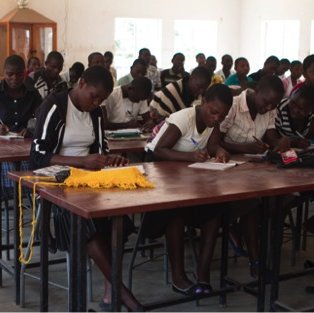
Education in Nkhotkota Wildlife Reserve
A tragic accident led to the foundation of the Tongole Wilderness Lodge and the Tongole Foundation, a twofold project which creates employment opportunities in a very deprived part of Malawi while investing in education for children in the local areas.
Building Tongole Wilderness Lodge created 100 job vacancies with 30 full-time employees being hired at the end of the construction project. Currently, the Tongole Foundation focuses their efforts on improving the standards of living for local communities surrounding the Nkhotkota Wildlife Reserve.
Facilitated by Tongole Wilderness Lodge and their guests, progress in community-based projects has been made. The main beneficiary is Mwalawatongole F.P. School, where over 70 pupils come to study daily and are accommodated in 6 permanent classrooms and 2 temporary ones. During rainy season, the obstacles imposed by transportation are tackled by providing teaching staff with on-site accommodation to ensure educational programs are not affected. Moreover, two other schools- Chankhokwe F.P. School and Wozi J.P. School have been supplied with educational materials such as exercise books, blackboard chalk, pens and pencils and footballs.
Another initiative is ‘The Chicken Project’ which was designed to help socially disadvantaged families in Nkhotakota, Malawi. Each family is given 1 cockerel and 2 hens. Once the hens start producing chicks, 3 chicks are then donated to another family. Chicks and eggs are sold and money helps cover children’s education costs.
See more great sustainability projects in Malawi
Communications
- Power supply notes
- 24 hour power and hot water is solar powered with a back-up generator.
- Communications
- Wi-Fi is available in the main building and a satellite phone is available in case of emergency. There is no cellphone reception.
- TV & radio
- None
- Water supply
- Borehole
- Water supply notes
- Hot water is available all day
Health & safety
- Malarial protection recommended
- Yes
- Medical care
- The nearest doctor is an hour’s drive away in Nkhotakota town. The lodge also has an airstrip so it is possible to fly any serious medical cases straight to Lilongwe, an hour’s flight away.
- Dangerous animals
- High Risk
- Security measures
- An armed scout is based in the camp. Guests may not walk around the camp alone after dark, when they are escorted to their chalets by nightwatchmen.
- Fire safety
- Fire extinguishers are located at each room, as well as in the main area and the kitchen
Useful info
- Disabled access
- On Request
- Laundry facilities
- Laundry is included.
- Money
- There are no safes in the rooms so valuables need to be left with the manager who will secure them in the office safe.
- Accepted payment on location
- Credit cards are not accepted at Tongole. Cash payments may be made in US dollars, South African rands, euros and Malawi kwacha.
Plan and book your trip with Expert Africa
All of our trips are tailor-made, so we'll always adapt them to suit you. Talk to an Expert and let us plan and arrange your perfect trip.

Talk to an Expert
Call or email us now! We’ll match you with the Specialist in our team who is best suited to help you. Then together we can start planning your trip.

Set up your itinerary
Based on our experience and your ideas, your specialist will create a detailed, costed itinerary. We’ll refine it together, until we have a trip that you’re perfectly happy with.

Prepare for your trip
The same Specialist will make the seamless arrangements for your trip, send you detailed travel documents, and be available to answer any questions before you depart.

Travel with peace of mind
After you set off, you’ll be cared for by our partners in Africa, most of whom have worked with Expert Africa for decades. And if you ever need us urgently, we’re available 24/7.

When you return
We love to learn about your trip, and so will always be grateful if you’ve the time to give feedback to your Specialist when you return.
Tongole Wilderness Lodge's location
Look closer at the environment and surroundings of Tongole Wilderness Lodge.
When to go to Nkhotakota Wildlife Reserve
Our month by month guide: What it's like to visit Tongole Wilderness Lodge in Nkhotakota Wildlife Reserve
Jan
Feb
Mar
Apr
May
Jun
Jul
Aug
Sep
Oct
Nov
Dec
Malawi in January
January is the middle of the rainy season in Malawi. You can expect heavy rain for a few hours most days with some occasional flooding. It is generally hot and wet, with temperatures reaching over 30ºC.
The landscape is green and lush and the air crystal clear. In the game reserves the thick bush can restrict animal sightings, making game viewing more challenging. With the abundance of water available the wildlife disperses and is no longer concentrated around water sources. However, many species give birth at this time of the year and it is a great time for birding.
Although the majority of the safari camps are open at this time, most of the beach lodges along the lakeshore close in mid January.
- Peak of the rainy season with thundershowers most days
- Many animals are with young & birdlife is at its most spectacular
- Bush lush & green; animals dispersed so game viewing more difficult
- Air is clear & dust-free, which is great for photography
- Majority of lakeside beach lodges are closed second half of January
Our view
This is not a great time to visit
Weather in January
Malawi in February
February is generally the wettest month and still the heart of the rainy season, with dramatic thunderstorms interspersed with sunny spells.
Expect some flooding and the ground to be waterlogged. The thick bush still affects game viewing on land, and walking safaris are limited, but game viewing by boat on the swollen Shire River, in both Liwonde National Park and Majete Game Reserve, is a highlight. Birdlife is also at its most spectacular at this time of year.
Visitor numbers and costs at the few open camps are low. Most of the beach lodges remain closed, with only one or two open all year.
- Peak of the rainy season with thundershowers most days
- The bush feels alive; birdlife is at its most spectacular
- Good for photography but poor game viewing
- Few tourists, so rates usually at their lowest
- Majority of lakeside beach lodges are still closed
Our view
This is not a great time to visit
Weather in February
Malawi in March
The rainy season is nearing the end in Malawi. The thunderstorms become fewer with sunnier days, but you can still expect some rain most days. March is one of the last of the summer months with temperatures still around 25–30ºC most days.
On safari the thick bush still restricts game viewing and walking safaris are limited too, with the larger animal species being quite elusive. On the plus side, migrant birds make the most of the abundant insect life. This time of the year is also great for keen photographers with the vivid green landscape and clear, dust-free air.
The beach lodges are also starting to open again around mid-March, following the rainy season.
- Expect to experience some rain most days
- The bush feels alive, with birdlife still a highlight
- Good for photography but game viewing remains poor
- With few tourists, rates generally at their lowest
- Beach lodges now open from mid-March
Our view
This is not a great time to visit
Weather in March
Malawi in April
April is a month of change in Malawi. The days start to cool down, rainfall decreases, and summer turns into autumn as the dry season approaches. Temperatures drop to around 25 ºC during the day with the evenings becoming cooler.
This is the tail-end of the green season and, after five months of rain, the landscape remains green and lush, with game viewing still a challenge. However, the birdlife is still great, and the improving weather attracts more visitors to both the bush and the beaches along the Malawi lakeshore.
- The temperatures are cooling down but still expect the odd rain shower
- Start of the dry season with mostly clear and sunny days
- Bush still green & lush: good for photography but not for game viewing
- Very few visitors, and still one of the cheapest times to visit
- The lakeshore beach lodges are now all open
Our view
A good time to visit, with pros & cons
Weather in April
Malawi in May
May is the end of summer and the first month of the dry season. There may still be the occasional shower, but clear sunny skies are becoming the norm. As winter approaches, daytime temperatures drop to a comfortable 20–25 ºC, but at night they’re down to around 10ºC, so warm clothing is advisable for early- morning game drives.
As the rain disappears the landscape starts to dry out. Although the vegetation is still thick, the game viewing starts to improve and walking safaris becoming more reliable. Birding is still excellent, too. Around the lakeshore, temperatures can be significantly warmer, making beach holidays popular at this time of the year. Yet visitor numbers remain low, making May one of the most cost-effective times to visit.
- Start of the dry season with mostly clear & sunny days
- Temperatures are mild along the lakeshore so good for a beach stay
- Bush still green & lush but game viewing improving
- Good for photography & great birdlife
- Very few visitors, & still one of the cheapest times to visit
Our view
A good time to visit, with pros & cons
Weather in May
Malawi in June
June is entirely in the dry season, and – along with May – can also be one of the coldest months. With no rain, clear skies and temperatures dropping to around 20–25ºC during the day, the nights can be cold, reaching around 10ºC. Warm clothing is advisable for early-morning and late-afternoon game drives.
The landscape remains lush, but the bush starts to die back significantly, bringing a marked improvement in wildlife viewing. This, along with cooler temperatures, makes June ideal for walking safaris. Temperatures around the lakeshore tend to be significantly warmer, so June is another popular month for beach holidays with higher visitor numbers.
- Well into the dry season with sunny days & cool temperatures
- Thick bush is dying back, & game viewing improves
- Increased visibility & cool weather perfect for walking safaris
- Mild temperatures along the lakeshore: good for a beach stay
- June is still low season : a popular time before high season starts
Our view
A very good time to visit
Weather in June
Malawi in July
July is the middle of the dry season in Malawi, with temperatures starting to pick up towards the end of the month. This makes July a good time for both safaris and beach holidays. Expect it to be pleasant during the day but still cold at night, especially at high altitude such as Nyika Plateau; blankets and hot water bottles are often provided on safari.
As the vegetation dies back, animals start to congregate around perennial water sources, making this one of the best times of year for game viewing.
July is also the start of high season and all the camps increase their rates to make the most of the improving game and the start of the international holiday period.
- Warm dry days with crisp cold nights
- Significantly improved game viewing
- No limit on walking safaris, with pleasant temperatures a plus
- Temperatures along the lakeshore ideal for beach and watersports
- Approaching peak season, so significant increase in costs
Our view
A very good time to visit
Weather in July
Malawi in August
August is well into the dry season with game concentrated around water sources and the safari season approaching its best. The landscape is changing from green to brown and the air is becoming drier and dustier. There is also a lot of smoke in the air as burning of trees and vegetation is prevalent in Malawi, so this isn’t the best time for photography.
Later in August the temperatures start to pick up, but early mornings and late evenings are still cooler – particularly out on open game drives where warm jackets, gloves and scarves are recommended. August is one of the most popular months. Pleasant weather and good game viewing attracts lots of visitors, and costs are correspondingly high.
- Warm dry days with crisp cold nights still the norm
- Game viewing at its best
- No limits on walking safaris, with pleasant temperatures a bonus
- Lakeshore temperatures remain good for beach and water sports
- Still peak season, with attendant high costs
Our view
Fantastic: the very best time to visit
Weather in August
Malawi in September
This is the most popular time of the year for a safari. There has been no rain for months and temperatures are starting to increase, making morning and evening game drives more comfortable. Daytime temperatures are now above 30ºC and evening temperatures relatively mild.
Game viewing is at its best with the animals concentrating around the reducing water sources, making wildlife interactions more common. With the increasing heat the air becomes more hazy, reducing photographic opportunities and distant views.
This is a good time to finish a safari with some relaxing time along the Malawi lakeshore. Costs, though, are high, and camps can be booked up months in advance.
- Dry & hot during the day with clear skies & warm nights
- One of the best months for wildlife viewing
- Dust & smoke creates a haze; not great for photography
- Temperatures along the lakeshore perfect for beach and watersports
- Peak season; camps are expensive & often full well in advance
Our view
Fantastic: the very best time to visit
Weather in September
Malawi in October
This is the last month of the dry season: the start of summer with temperatures peaking over 40ºC during the day and hardly less than 20ºC at night. This makes early-morning and late-evening game drives more comfortable but can be terribly hot during the day and makes walking safaris very challenging.
The landscape is very dry and brown, so not ideal for photography, but game viewing remains at its best. With the lack of water the animals are all vying for the best spot to drink without being preyed upon.
October is the perfect time to finish a safari with some relaxing time along the Malawi lakeshore. It is still peak season, though, and costs remain high.
- Dry, hot days with clear skies; warm nights
- One of the best months for wildlife viewing
- The haze from dust & smoke is not great for photography
- Warm lakeshore temperatures still good for beach & watersports
- Peak season; camps are expensive & often full well in advance
Our view
A very good time to visit
Weather in October
Malawi in November
November marks the end of the dry season and the start of the rainy season. Temperatures continue to increase with humidity building as the rains approach, which can be any time during the month. Be prepared for spectacular thunderstorms and short sharp showers.
After the first rains the bush springs back to life and wildlife disperses, making game viewing harder. Birding, though, is on the up – and with the air washed clean, photographic opportunities improve.
The first week or two are a good time to travel as the camps have reduced their rates and rains may not have started in earnest. However, while all the camps and beach lodges remain open some of the airstrips may become waterlogged, making road transfers more practical.
- Typically the start of the wet season; very hot & humid
- Increased chance of heavy rain as the month progresses
- Greatly diminished game viewing once the rains arrive
- A good time for photographers & keen birders
- Lower rates at camps and beach lodges, with fewer visitors
Our view
A good time to visit, with pros & cons
Weather in November
Malawi in December
December is the first full month of the rainy season, with daily thundershowers expected, interspersed with sunny spells. Temperatures are around 30ºC with high humidity.
After a few weeks of rain, the abundance of standing water causes animals to disperse and the bush becomes thicker and greener, reducing visibility for game viewing. Conversely, this is when many animals produce their young, and is a great time for birdwatching. The rain also clears the air of dust and smoke, making it much more favourable for keen photographers.
December is still a good month to be along the lakeshore provided you don’t mind the afternoon rain showers.
- Very hot & humid
- Increased chance of heavy rain as the month progresses
- Opportunities for game viewing decrease with the arrival of the rains
- A great time for photographers & keen birders
- Rates at camps & beach lodges fall, as do visitor numbers
Our view
A good time to visit, with pros & cons
Weather in December

Looking for inspiration on where to travel next?
Visit our trip chooser to explore your options and find inspiration for your perfect African adventure
Inspire me